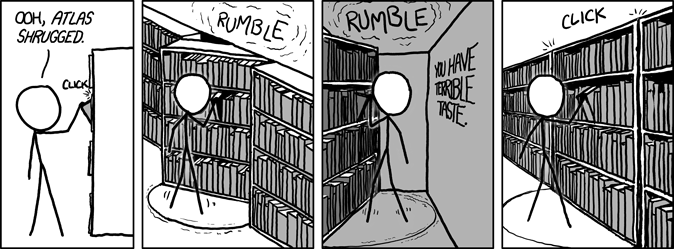Thomas Shey
Legend
The discussion about the novel Starship Troopers and the views about it, got me wondering:
Is it hard or easy to put aside your own personal views when you read a book? Or is it out right impossible?
Its harder these days. There were books I read in my youth where things just flowed off me like water off a duck's back (some of H. Beam Piper's work for example) that on rereading I found more than a little bit jarring.



